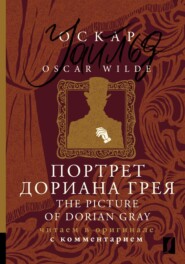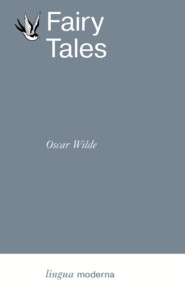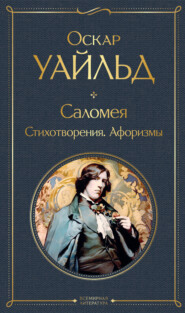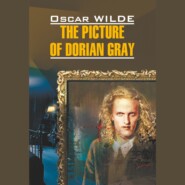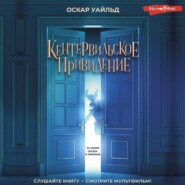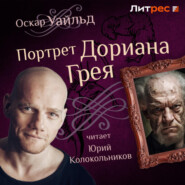По всем вопросам обращайтесь на: info@litportal.ru
(©) 2003-2024.
✖
Reviews
Настройки чтения
Размер шрифта
Высота строк
Поля
However, last Saturday night was not a night for criticism. The theatre was filled with those who desired to welcome Mr. Irving back to his own theatre, and we were all delighted at his re-appearance among us. I hope that some time will elapse before he and Miss Terry cross again that disappointing Atlantic Ocean.
TWO NEW NOVELS
(Pall Mall Gazette, May 15, 1885.)
The clever authoress of In the Golden Days has chosen for the scene of her story the England of two centuries ago, as a relief, she tells us in her preface, ‘from perpetual nineteenth-centuryism.’ Upon the other hand, she makes a pathetic appeal to her readers not to regard her book as an ‘historical novel,’ on the ground that such a title strikes terror into the public. This seems to us rather a curious position to take up. Esmond and Notre Dame are historical novels, both of them, and both of them popular successes. John Inglesant and Romola have gone through many editions, and even Salammbo has its enthusiasts. We think that the public is very fond of historical novels, and as for perpetual ‘nineteenth-centuryism’ – a vile phrase, by the way – we only wish that more of our English novelists studied our age and its society than do so at present. However, In the Golden Days must not be judged by its foolish preface. It is really a very charming book, and though Dryden, Betterton, and Wills’s Coffee-House are dragged in rather à propos de bottes, still the picture of the time is well painted. Joyce, the little Puritan maiden, is an exquisite creation, and Hugo Wharncliffe, her lover, makes a fine hero. The sketch of Algernon Sidney is rather colourless, but Charles II. is well drawn. It seems to be a novel with a high purpose and a noble meaning. Yet it is never dull.
Mrs. Macquoid’s Louisa is modern and the scene is in Italy. Italy, we fear, has been a good deal overdone in fiction. A little more Piccadilly and a little less Perugia would be a relief. However, the story is interesting. A young English girl marries an Italian nobleman and, after some time, being bored with picturesqueness, falls in love with an Englishman. The story is told with a great deal of power and ends properly and pleasantly. It can safely be recommended to young persons.
(1) In the Golden Days. By Edna Lyall, Author of We Two, Donovan, etc. (Hurst and Blackett.)
(2) Louisa. By Katherine S. Macquoid. (Bentley and Son.)
HENRY THE FOURTH AT OXFORD
(Dramatic Review, May 23, 1885.)
I have been told that the ambition of every Dramatic Club is to act Henry IV. I am not surprised. The spirit of comedy is as fervent in this play as is the spirit of chivalry; it is an heroic pageant as well as an heroic poem, and like most of Shakespeare’s historical dramas it contains an extraordinary number of thoroughly good acting parts, each of which is absolutely individual in character, and each of which contributes to the evolution of the plot.
Rumour, from time to time, has brought in tidings of a proposed production by the banks of the Cam, but it seems at the last moment Box and Cox has always had to be substituted in the bill.
To Oxford belongs the honour of having been the first to present on the stage this noble play, and the production which I saw last week was in every way worthy of that lovely town, that mother of sweetness and of light. For, in spite of the roaring of the young lions at the Union, and the screaming of the rabbits in the home of the vivisector, in spite of Keble College, and the tramways, and the sporting prints, Oxford still remains the most beautiful thing in England, and nowhere else are life and art so exquisitely blended, so perfectly made one. Indeed, in most other towns art has often to present herself in the form of a reaction against the sordid ugliness of ignoble lives, but at Oxford she comes to us as an exquisite flower born of the beauty of life and expressive of life’s joy. She finds her home by the Isis as once she did by the Ilissus; the Magdalen walks and the Magdalen cloisters are as dear to her as were ever the silver olives of Colonus and the golden gateway of the house of Pallas: she covers with fanlike tracery the vaulted entrance to Christ Church Hall, and looks out from the windows of Merton; her feet have stirred the Cumnor cowslips, and she gathers fritillaries in the river-fields. To her the clamour of the schools and the dulness of the lecture-room are a weariness and a vexation of spirit; she seeks not to define virtue, and cares little for the categories; she smiles on the swift athlete whose plastic grace has pleased her, and rejoices in the young Barbarians at their games; she watches the rowers from the reedy bank and gives myrtle to her lovers, and laurel to her poets, and rue to those who talk wisely in the street; she makes the earth lovely to all who dream with Keats; she opens high heaven to all who soar with Shelley; and turning away her head from pedant, proctor and Philistine, she has welcomed to her shrine a band of youthful actors, knowing that they have sought with much ardour for the stern secret of Melpomene, and caught with much gladness the sweet laughter of Thalia. And to me this ardour and this gladness were the two most fascinating qualities of the Oxford performance, as indeed they are qualities which are necessary to any fine dramatic production. For without quick and imaginative observation of life the most beautiful play becomes dull in presentation, and what is not conceived in delight by the actor can give no delight at all to others.
I know that there are many who consider that Shakespeare is more for the study than for the stage. With this view I do not for a moment agree. Shakespeare wrote the plays to be acted, and we have no right to alter the form which he himself selected for the full expression of his work. Indeed, many of the beauties of that work can be adequately conveyed to us only through the actor’s art. As I sat in the Town Hall of Oxford the other night, the majesty of the mighty lines of the play seemed to me to gain new music from the clear young voices that uttered them, and the ideal grandeur of the heroism to be made more real to the spectators by the chivalrous bearing, the noble gesture and the fine passion of its exponents. Even the dresses had their dramatic value. Their archæological accuracy gave us, immediately on the rise of the curtain, a perfect picture of the time. As the knights and nobles moved across the stage in the flowing robes of peace and in the burnished steel of battle, we needed no dreary chorus to tell us in what age or land the play’s action was passing, for the fifteenth century in all the dignity and grace of its apparel was living actually before us, and the delicate harmonies of colour struck from the first a dominant note of beauty which added to the intellectual realism of archæology the sensuous charm of art.
As for individual actors, Mr. Mackinnon’s Prince Hal was a most gay and graceful performance, lit here and there with charming touches of princely dignity and of noble feeling. Mr. Coleridge’s Falstaff was full of delightful humour, though perhaps at times he did not take us sufficiently into his confidence. An audience looks at a tragedian, but a comedian looks at his audience. However, he gave much pleasure to every one, and Mr. Bourchier’s Hotspur was really most remarkable. Mr. Bourchier has a fine stage presence, a beautiful voice, and produces his effects by a method as dramatically impressive as it is artistically right. Once or twice he seemed to me to spoil his last line by walking through it. The part of Harry Percy is one full of climaxes which must not be let slip. But still there was always a freedom and spirit in his style which was very pleasing, and his delivery of the colloquial passages I thought excellent, notably of that in the first act:
What d’ ye call the place?
A plague upon’t – it is in Gloucestershire;
’Twas where the madcap duke his uncle kept,
His uncle York;
lines by the way in which Kemble made a great effect. Mr. Bourchier has the opportunity of a fine career on the English stage, and I hope he will take advantage of it. Among the minor parts in the play Glendower, Mortimer and Sir Richard Vernon were capitally acted, Worcester was a performance of some subtlety, Mrs. Woods was a charming Lady Percy, and Lady Edward Spencer Churchill, as Mortimer’s wife, made us all believe that we understood Welsh. Her dialogue and her song were most pleasing bits of artistic realism which fully accounted for the Celtic chair at Oxford.
But though I have mentioned particular actors, the real value of the whole representation was to be found in its absolute unity, in its delicate sense of proportion, and in that breadth of effect which is to be got only by the most careful elaboration of detail. I have rarely seen a production better stage-managed. Indeed, I hope that the University will take some official notice of this delightful work of art. Why should not degrees be granted for good acting? Are they not given to those who misunderstand Plato and who mistranslate Aristotle? And should the artist be passed over? No. To Prince Hal, Hotspur and Falstaff, D.C.L.’s should be gracefully offered. I feel sure they would be gracefully accepted. To the rest of the company the crimson or the sheep-skin hood might be assigned honoris causâ to the eternal confusion of the Philistine, and the rage of the industrious and the dull. Thus would Oxford confer honour on herself, and the artist be placed in his proper position. However, whether or not Convocation recognises the claims of culture, I hope that the Oxford Dramatic Society will produce every summer for us some noble play like Henry IV. For, in plays of this kind, plays which deal with bygone times, there is always this peculiar charm, that they combine in one exquisite presentation the passions that are living with the picturesqueness that is dead. And when we have the modern spirit given to us in an antique form, the very remoteness of that form can be made a method of increased realism. This was Shakespeare’s own attitude towards the ancient world, this is the attitude we in this century should adopt towards his plays, and with a feeling akin to this it seemed to me that these brilliant young Oxonians were working. If it was so, their aim is the right one. For while we look to the dramatist to give romance to realism, we ask of the actor to give realism to romance.
MODERN GREEK POETRY
(Pall Mall Gazette, May 27, 1885.)
Odysseus, not Achilles, is the type of the modern Greek. Merchandise has taken precedence of the Muses and politics are preferred to Parnassus. Yet by the Illissus there are sweet singers; the nightingales are not silent in Colonus; and from the garden of Greek nineteenth-century poetry Miss Edmonds has made a very pleasing anthology; and in pouring the wine from the golden into the silver cup she has still kept much of the beauty of the original. Even when translated into English, modern Greek lyrics are preferable to modern Greek loans.
As regards the quality of this poetry, if the old Greek spirit can be traced at all, it is the spirit of Tyrtæus and of Theocritus. The warlike ballads of Rhigas and Aristotle Valaôritês have a fine ring of music and of passion in them, and the folk-songs of George Drosinês are full of charming pictures of rustic life and delicate idylls of shepherds’ courtships. These we acknowledge that we prefer. The flutes of the sheepfold are more delightful than the clarions of battle. Still, poetry played such a noble part in the Greek War of Independence that it is impossible not to look with reverence on the spirited war-songs that meant so much to those who were righting for liberty and mean so much even now to their children.
Other poets besides Drosinês have taken the legends that linger among the peasants and given to them an artistic form. The song of The Seasons is full of beauty, and there is a delightful poem on The Building of St. Sophia, which tells how the design of that noble building was suggested by the golden honeycomb of a bee which had flown from the king’s palace with a crumb of blessed bread that had fallen from the king’s hands. The story is still to be found in Thrace.
One of the ballads, also, has a good deal of spirit. It is by Kostês Palamas and was suggested by an interesting incident which occurred some years ago in Athens. In the summer of 1881 there was borne through the streets the remains of an aged woman in the complete costume of a Pallikar, which dress she had worn at the siege of Missolonghi and in it had requested to be buried. The life of this real Greek heroine should be studied by those who are investigating the question of wherein womanliness consists. The view the poet takes of her is, we need hardly say, very different from that which Canon Liddon would entertain. Yet it is none the less fine on this account, and we are glad that this old lady has been given a place in art. The volume is, on the whole, delightful reading, and though not much can be said for lines like these:
There cometh from the West
The timid starry bands,
still, the translations are in many instances most felicitous and their style most pleasing.
Greek Lays, Idylls, Legends, etc. Translated by E. M. Edmonds. (Trübner and Co.)
OLIVIA AT THE LYCEUM
(Dramatic Review, May 30, 1885.)
Whether or not it is an advantage for a novel to be produced in a dramatic form is, I think, open to question. The psychological analysis of such work as that of Mr. George Meredith, for instance, would probably lose by being transmuted into the passionate action of the stage, nor does M. Zola’s formule scientifique gain anything at all by theatrical presentation. With Goldsmith it is somewhat different. In The Vicar of Wakefield he seeks simply to please his readers, and desires not to prove a theory; he looks on life rather as a picture to be painted than as a problem to be solved; his aim is to create men and women more than to vivisect them; his dialogue is essentially dramatic, and his novel seems to pass naturally into the dramatic form. And to me there is something very pleasurable in seeing and studying the same subject under different conditions of art. For life remains eternally unchanged; it is art which, by presenting it to us under various forms, enables us to realise its many-sided mysteries, and to catch the quality of its most fiery-coloured moments. The originality, I mean, which we ask from the artist, is originality of treatment, not of subject. It is only the unimaginative who ever invents. The true artist is known by the use he makes of what he annexes, and he annexes everything.
Looking in this light at Mr. Wills’s Olivia, it seems to me a very exquisite work of art. Indeed, I know no other dramatist who could have re-told this beautiful English tale with such tenderness and such power, neither losing the charm of the old story nor forgetting the conditions of the new form. The sentiment of the poet and the science of the playwright are exquisitely balanced in it. For though in prose it is a poem, and while a poem it is also a play.
But fortunate as Mr. Wills has been in the selection of his subject and in his treatment of it, he is no less fortunate in the actors who interpret his work. To whatever character Miss Terry plays she brings the infinite charm of her beauty, and the marvellous grace of her movements and gestures. It is impossible to escape from the sweet tyranny of her personality. She dominates her audience by the secret of Cleopatra. In her Olivia, however, it is not merely her personality that fascinates us but her power also, her power over pathos, and her command of situation. The scene in which she bade goodbye to her family was touching beyond any scene I remember in any modern play, yet no harsh or violent note was sounded; and when in the succeeding act she struck, in natural and noble indignation, the libertine who had betrayed her, there was, I think, no one in the theatre who did not recognise that in Miss Terry our stage possesses a really great artist, who can thrill an audience without harrowing it, and by means that seem simple and easy can produce the finest dramatic effect. Mr. Irving, as Dr. Primrose, intensified the beautiful and blind idolatry of the old pastor for his daughter till his own tragedy seems almost greater than hers; the scene in the third act, where he breaks down in his attempt to reprove the lamb that has strayed from the fold, was a masterpiece of fine acting; and the whole performance, while carefully elaborate in detail, was full of breadth and dignity. I acknowledge that I liked him least at the close of the second act. It seems to me that here we should be made to feel not merely the passionate rage of the father, but the powerlessness of the old man. The taking down of the pistols, and the attempt to follow the young duellist, are pathetic because they are useless, and I hardly think that Mr. Irving conveyed this idea. As regards the rest of the characters, Mr. Terriss’s Squire Thornhill was an admirable picture of a fascinating young rake. Indeed, it was so fascinating that the moral equilibrium of the audience was quite disturbed, and nobody seemed to care very much for the virtuous Mr. Burchell. I was not sorry to see this triumph of the artistic over the ethical sympathy. Perfect heroes are the monsters of melodramas, and have no place in dramatic art. Life possibly contains them, but Parnassus often rejects what Peckham may welcome. I look forward to a reaction in favour of the cultured criminal. Mr. Norman Forbes was a very pleasing Moses, and gave his Latin quotations charmingly, Miss Emery’s Sophy was most winning, and, indeed, every part seemed to me well acted except that of the virtuous Mr. Burchell. This fact, however, rather pleased me than otherwise, as it increased the charm of his attractive nephew.
The scenery and costumes were excellent, as indeed they always are at the Lyceum when the piece is produced under Mr. Irving’s direction. The first scene was really very beautiful, and quite as good as the famous cherry orchard of the Théâtre Français. A critic who posed as an authority on field sports assured me that no one ever went out hunting when roses were in full bloom. Personally, that is exactly the season I would select for the chase, but then I know more about flowers than I do about foxes, and like them much better. If the critic was right, either the roses must wither or Squire Thornhill must change his coat. A more serious objection may be brought against the division of the last act into three scenes. There, I think, there was a distinct dramatic loss. The room to which Olivia returns should have been exactly the same room she had left. As a picture of the eighteenth century, however, the whole production was admirable, and the details, both of acting and of mise-en-scène, wonderfully perfect. I wish Olivia would take off her pretty mittens when her fortune is being told. Cheiromancy is a science which deals almost entirely with the lines on the palm of the hand, and mittens would seriously interfere with its mysticism. Still, when all is said, how easily does this lovely play, this artistic presentation, survive criticisms founded on cheiromancy and cub-hunting! The Lyceum under Mr. Irving’s management has become a centre of art. We are all of us in his debt. I trust that we may see some more plays by living dramatists produced at his theatre, for Olivia has been exquisitely mounted and exquisitely played.
AS YOU LIKE IT AT COOMBE HOUSE
(Dramatic Review, June 6, 1885.)
In Théophile Gautier’s first novel, that golden book of spirit and sense, that holy writ of beauty, there is a most fascinating account of an amateur performance of As You Like It in the large orangery of a French country house. Yet, lovely as Gautier’s description is, the real presentation of the play last week at Coombe seemed to me lovelier still, for not merely were there present in it all those elements of poetry and picturesqueness which le maître impeccable so desired, but to them was added also the exquisite charm of the open woodland and the delightful freedom of the open air. Nor indeed could the Pastoral Players have made a more fortunate selection of a play. A tragedy under the same conditions would have been impossible. For tragedy is the exaggeration of the individual, and nature thinks nothing of dwarfing a hero by a holly bush, and reducing a heroine to a mere effect of colour. The subtleties also of facial expression are in the open air almost entirely lost; and while this would be a serious defect in the presentation of a play which deals immediately with psychology, in the case of a comedy, where the situations predominate over the characters, we do not feel it nearly so much; and Shakespeare himself seems to have clearly recognised this difference, for while he had Hamlet and Macbeth always played by artificial light he acted As You Like It and the rest of his comedies en plein jour.
The condition then under which this comedy was produced by Lady Archibald Campbell and Mr. Godwin did not place any great limitations on the actor’s art, and increased tenfold the value of the play as a picture. Through an alley of white hawthorn and gold laburnum we passed into the green pavilion that served as the theatre, the air sweet with odour of the lilac and with the blackbird’s song; and when the curtain fell into its trench of flowers, and the play commenced, we saw before us a real forest, and we knew it to be Arden. For with whoop and shout, up through the rustling fern came the foresters trooping, the banished Duke took his seat beneath the tall elm, and as his lords lay around him on the grass, the rich melody of Shakespeare’s blank verse began to reach our ears. And all through the performance this delightful sense of joyous woodland life was sustained, and even when the scene was left empty for the shepherd to drive his flock across the sward, or for Rosalind to school Orlando in love-making, far away we could hear the shrill halloo of the hunter, and catch now and then the faint music of some distant horn. One distinct dramatic advantage was gained by the mise en scène.
The abrupt exits and entrances, which are necessitated on the real stage by the inevitable limitations of space, were in many cases done away with, and we saw the characters coming gradually towards us through brake and underwood, or passing away down the slope till they were lost in some deep recess of the forest; the effect of distance thus gained being largely increased by the faint wreaths of blue mist that floated at times across the background. Indeed I never saw an illustration at once so perfect and so practical of the æsthetic value of smoke.
As for the players themselves, the pleasing naturalness of their method harmonised delightfully with their natural surroundings. Those of them who were amateurs were too artistic to be stagey, and those who were actors too experienced to be artificial. The humorous sadness of Jaques, that philosopher in search of sensation, found a perfect exponent in Mr. Hermann Vezin. Touchstone has been so often acted as a low comedy part that Mr. Elliott’s rendering of the swift sententious fool was a welcome change, and a more graceful and winning Phebe than Mrs. Plowden, a more tender Celia than Miss Schletter, a more realistic Audrey than Miss Fulton, I have never seen. Rosalind suffered a good deal through the omission of the first act; we saw, I mean, more of the saucy boy than we did of the noble girl; and though the persiflage always told, the poetry was often lost; still Miss Calhoun gave much pleasure; and Lady Archibald Campbell’s Orlando was a really remarkable performance. Too melancholy some seemed to think it. Yet is not Orlando lovesick? Too dreamy, I heard it said. Yet Orlando is a poet. And even admitting that the vigour of the lad who tripped up the Duke’s wrestler was hardly sufficiently emphasised, still in the low music of Lady Archibald Campbell’s voice, and in the strange beauty of her movements and gestures, there was a wonderful fascination, and the visible presence of romance quite consoled me for the possible absence of robustness. Among the other characters should be mentioned Mr. Claude Ponsonby’s First Lord, Mr. De Cordova’s Corin (a bit of excellent acting), and the Silvius of Mr. Webster.
As regards the costumes the colour scheme was very perfect. Brown and green were the dominant notes, and yellow was most artistically used. There were, however, two distinct discords. Touchstone’s motley was far too glaring, and the crude white of Rosalind’s bridal raiment in the last act was absolutely displeasing. A contrast may be striking but should never be harsh. And lovely in colour as Mrs. Plowden’s dress was, a sort of panegyric on a pansy, I am afraid that in Shakespeare’s Arden there were no Chelsea China Shepherdesses, and I am sure that the romance of Phebe does not need to be intensified by any reminiscences of porcelain. Still, As You Like It has probably never been so well mounted, nor costumes worn with more ease and simplicity. Not the least charming part of the whole production was the music, which was under the direction of the Rev. Arthur Batson. The boys’ voices were quite exquisite, and Mr. Walsham sang with much spirit.
On the whole the Pastoral Players are to be warmly congratulated on the success of their representation, and to the artistic sympathies of Lady Archibald Campbell, and the artistic knowledge of Mr. Godwin, I am indebted for a most delightful afternoon. Few things are so pleasurable as to be able by an hour’s drive to exchange Piccadilly for Parnassus.
A HANDBOOK TO MARRIAGE
(Pall Mall Gazette, November 18, 1885.)
In spite of its somewhat alarming title this book may be highly recommended to every one. As for the authorities the author quotes, they are almost numberless, and range from Socrates down to Artemus Ward. He tells us of the wicked bachelor who spoke of marriage as ‘a very harmless amusement’ and advised a young friend of his to ‘marry early and marry often’; of Dr. Johnson who proposed that marriage should be arranged by the Lord Chancellor, without the parties concerned having any choice in the matter; of the Sussex labourer who asked, ‘Why should I give a woman half my victuals for cooking the other half?’ and of Lord Verulam who thought that unmarried men did the best public work. And, indeed, marriage is the one subject on which all women agree and all men disagree. Our author, however, is clearly of the same opinion as the Scotch lassie who, on her father warning her what a solemn thing it was to get married, answered, ‘I ken that, father, but it’s a great deal solemner to be single.’ He may be regarded as the champion of the married life. Indeed, he has a most interesting chapter on marriage-made men, and though he dissents, and we think rightly, from the view recently put forward by a lady or two on the Women’s Rights platform that Solomon owed all his wisdom to the number of his wives, still he appeals to Bismarck, John Stuart Mill, Mahommed and Lord Beaconsfield, as instances of men whose success can be traced to the influence of the women they married. Archbishop Whately once defined woman as ‘a creature that does not reason and pokes the fire from the top,’ but since his day the higher education of women has considerably altered their position. Women have always had an emotional sympathy with those they love; Girton and Newnham have rendered intellectual sympathy also possible. In our day it is best for a man to be married, and men must give up the tyranny in married life which was once so dear to them, and which, we are afraid, lingers still, here and there.
‘Do you wish to be my wife, Mabel?’ said a little boy.
‘Yes,’ incautiously answered Mabel.
‘Then pull off my boots.’
On marriage vows our author has, too, very sensible views and very amusing stories. He tells of a nervous bridegroom who, confusing the baptismal and marriage ceremonies, replied when asked if he consented to take the bride for his wife: ‘I renounce them all’; of a Hampshire rustic who, when giving the ring, said solemnly to the bride: ‘With my body I thee wash up, and with all my hurdle goods I thee and thou’; of another who, when asked whether he would take his partner to be his wedded wife, replied with shameful indecision: ‘Yes, I’m willin’; but I’d a sight rather have her sister’; and of a Scotch lady who, on the occasion of her daughter’s wedding, was asked by an old friend whether she might congratulate her on the event, and answered: ‘Yes, yes, upon the whole it is very satisfactory; it is true Jeannie hates her gudeman, but then there’s always a something!’ Indeed, the good stories contained in this book are quite endless and make it very pleasant reading, while the good advice is on all points admirable.
Most young married people nowadays start in life with a dreadful collection of ormolu inkstands covered with sham onyxes, or with a perfect museum of salt-cellars. We strongly recommend this book as one of the best of wedding presents. It is a complete handbook to an earthly Paradise, and its author may be regarded as the Murray of matrimony and the Baedeker of bliss.







